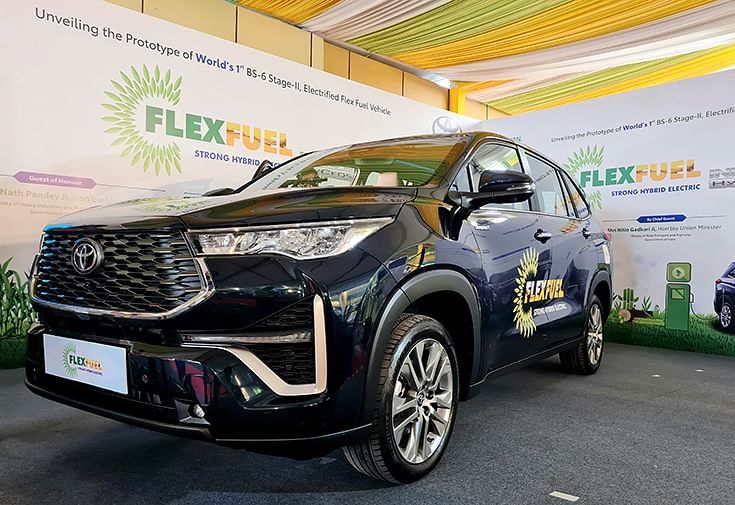Global Biofuels Alliance announced at G20 Summit
The Global Biofuels Alliance is an India-led initiative to develop an alliance of governments, international organisations and industry to facilitate adoption of biofuels.
The global energy sector has witnessed a historic moment today with the announcement of the Global Biofuels Alliance (GBA) by Prime Minister Narendra Modi on the sidelines of the G20 Summit in New Delhi.
GBA is an India-led initiative to develop an alliance of governments, international organisations and industry to facilitate adoption of biofuels. Bringing together the biggest consumers and producers of biofuels to drive biofuels development and deployment, the initiative aims to position biofuels as a key to energy transition and contribute to jobs and economic growth.
GBA will support worldwide development and deployment of sustainable biofuels by offering capacity-building exercises across the value chain, technical support for national programs and promoting policy lessons-sharing. It will facilitate mobilising a virtual marketplace to assist industries, countries, ecosystem players and key stakeholders in mapping demand and supply, as well as connecting technology providers to end users. It will also facilitate development, adoption and implementation of internationally recognised standards, codes, sustainability principles and regulations to incentivise biofuels adoption and trade.
The initiative will be beneficial for India at multiple fronts. GBA as a tangible outcome of the G20 presidency, will help strengthen India’s position globally. Moreover, the alliance will focus on collaboration and will provide additional opportunities to Indian industries in the form of exporting technology and exporting equipment. It will help accelerate India’s existing biofuels programs such as PM-JIVANYojna, SATAT, and GOBARdhan scheme, thereby contributing to increased farmers’ income, creating jobs and overall development of the Indian ecosystem. The global ethanol market was valued at US$ 99.06 billion in 2022 and is predicted to grow at a CAGR of 5.1% by 2032 and surpass US$ 162.12 billion by 2032. As per IEA, there will be 3.5-5x biofuels growth potential by 2050 due to Net Zero targets, creating a huge opportunity for India.
Countries and organisations which have already joined GBA
Nineteen countries and 12 international organisations have already agreed to join. The seven G20 countries supporting GBA are Argentina, Brazil, Canada, India, Italy, South Africa and the USA. Four G20 invitee countries supporting GBA are Bangladesh, Singapore, Mauritius and the UAE. There are eight non-G20 countries supporting GBA: Iceland, Kenya, Guyana, Paraguay, Seychelles, Sri Lanka, and Uganda have agreed to be initiating members of GBA, and Finland.
There are 12 international organisations supporting GBA. They comprise the World Bank, Asian Development Bank, World Economic Forum, World LPG Organization, UN Energy for All, UNIDO, Biofutures Platform, International Civil Aviation Organization, International Energy Agency, International Energy Forum, International Renewable Energy Agency, World Biogas Association.
GBA members constitute major producers and consumers of biofuels. USA (52%), Brazil (30%) and India (3%), contribute about 85% share in production and about 81% in consumption of ethanol.
INDUSTRY LAUDS THE INITIATIVE
Commenting on the Global Biofuel Alliance, Vikram Gulati, Country Head and Executive Vice-President, Toyota Kirloskar Motor, said: “We at Toyota Kirloskar Motors, applaud the initiative of forming the Global Biofuel Alliance aimed at bringing together countries, international organisations and industry to facilitate adoption of biofuels by driving biofuel development, deployment as well as position biofuels as a key to energy transition thereby contributing to jobs and sustainable economic growth. This announcement has come at a much appropriate time. The Global Biofuel Alliance is a critical step towards a sustainable future as it seeks to build capacity, provide technical assistance, create of a virtual marketplace, put down standard codes, sustainability principles and regulations for biofuels, to meet the growing energy needs, both in the domestic as well as global markets.”

He added, “We believe that this will facilitate the ongoing efforts of various stakeholders, including corporates, to bring down the oil import bill and realise the carbon reduction goal at a faster pace. At Toyota, we are aligned to the efforts of the Global Biofuel Alliance and are adopting a multiple technology approach providing clean and green mobility solutions including the use of alternate fuels (like ethanol) to enable faster shift away from fossil fuels. Towards this, on August 2923, TKM unveiled the prototype of the world’s first BS 6 (Stage II) Electrified Flex Fuel Vehicle (Innova Hycross), that combines a flexfuel (biofuel) engine with an electric powertrain to provide dual benefits of larger petrol substitution and higher energy efficiency. This technology promises a disruption-free, smooth and faster energy transition.”
Image: PIB
ALSO READ:
Indian Oil and Praj to form JV for building biofuels production capacities
Biofuels can be the pathway to carbon-neutrality: experts at SIAM conference
RELATED ARTICLES
Autoliv Plans JV for Advanced Safety Electronics With China’s HSAE
The new joint venture, which is to be located strategically near Shanghai and close to several existing Autoliv sites in...
JLR to Restart Production Over a Month After September Hacking
Manufacturing operations at the Tata Group-owned British luxury car and SUV manufacturer were shut down following a cybe...
BYD UK Sales Jump 880% in September to 11,271 units
Sales record sets the UK apart as the largest international market for BYD outside of China for the first time. The Seal...






 By Autocar Professional Bureau
By Autocar Professional Bureau
 09 Sep 2023
09 Sep 2023
 6494 Views
6494 Views





 Ajit Dalvi
Ajit Dalvi




